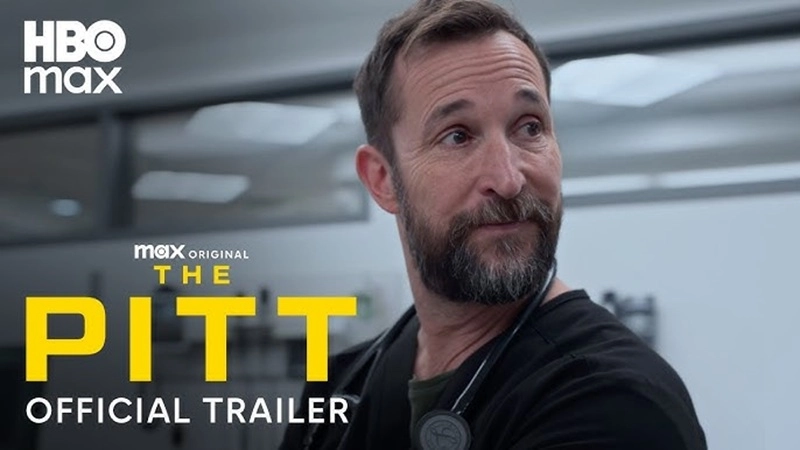Key to a good workplace: how to collect and interpret data as an HR professional
Measure employee engagement, and do performance appraisals and good selection procedures. Companies already collect and use many data in these three areas, but there is plenty of room for improvement. "The trick is more about asking the right questions, separating performance from skills, for example. It's very easy to misuse data, even to use it to reinforce preconceptions," says Andrea Jones-Rooy, social and data scientist and "data acrobat."

What does the term „data acrobat” mean?
The truth is, the Brain Bar people invented it, I really liked it, and I've been using it ever since. It stems from the fact that I am a data scientist, a data science professor, and a performer - an acrobat and an artist - doing trapeze and fire stunts. I used to do them separately, but I've started to combine them in the last five years. Usually, I talk about data science in a traditional lecture so the audience sees the data analysis live in ppt. Then I bring in the circus elements at the end of the lecture as a summary, as a finale.
The second is that data science does require mental acrobatics. Although we are almost constantly sitting in front of a computer and staring at a monitor, it is important to consider how to interpret our data from a new perspective. There are a million different perspectives, and I always encourage people to approach the data from many angles to get as much out of it as possible.
What is the role of data today when misinformation is spreading very fast? How can we convince people that data-backed information is worth listening to?
Misinformation is a serious problem everywhere. I would mention two things: data can be very valuable as an antidote because, of course, you can create false data, but it is much harder to make a data set "credible" than to put together a tweet, a meme, a short article, which is the way such information is most likely to be spread. My goal is, first and foremost, to ensure that people are not alienated, not intimidated when accessing and interpreting data.
However, certain questions must also be asked about the data so that they can be trusted. For example, who collected the data, the measurement methodology, who was involved in the survey, how credible and fair the research information is, and what biases are there. Being able to interpret a data set yourself is a major competence. Of course, this also requires that the person wants to understand the world and read even scientific works, even if they do not understand all the details.
Unrestrained acceptance of misleading information often stems from fear, when we do not understand what is happening around us, trusting a politician or a star, a journalist and their interpretation. One of the biggest problems is not knowing where to look for information. I would say as close to the source as possible.
How can you make this topic interesting and exciting for a wider audience when many people only read an article's title and introduction?
It may be a problem to talk about data science as some magical field that only an elite can understand and access. At the same time, I don't want to diminish the complexity of the task. However, there is plenty of room for convergence between the two. It is important to equip people with knowledge, so they are not afraid and curious. Of course, this requires reading more than a paragraph, while the battle for people's attention is fierce. It is a longer-term strategy. I often read the first paragraphs of a paper together with the audience, we interpret them line by line, and it turns out that scientific work can be a very entertaining read with a lot of history and drama.
You also work with businesses, how do you show them the usefulness of data first for their employees and, indirectly, for their customers?
One of the key questions is how best to use our data or what data to collect to make our employees' lives better and more efficient, hire the right people, improve the employee experience, etc. I usually work with HR professionals who are not data scientists but have experience in data management. I show them how to use data more versatilely, asking the right questions to get more valuable data.
If you're an HR person, you have an idea of why a talented employee leaves or what skills are needed to make someone successful in your company, but until you have measurements and data on the subject, it's just assumptions. Let's start in that direction if we have a question or an assumption. Let's gather the data, let's look at it from a new perspective in light of our question. HR will usually know what would be worth studying and what is going on in the company, and I can help you turn the data around, perhaps applying techniques you haven't used before to analyse it.
How does this affect the culture of the organisation?
I wrote my thesis in political science on national cultures. Put simply: culture is a set of behaviours we follow within specific rules and laws. However, actual behaviour often deviates from the rules laid down. Think of the norms of behaviour, of greeting each other in different cultures. Companies operate in the same way.
We can change the rules, but it will not change the behaviour. And it's the behaviour of people that determines whether a company is a good place to work. Because a company can give you many days off if no one dares to take them because there is so much competition between workers. So in many cases, it is not the company rules that need changing, but behaviour and culture - in small steps - because significant changes can be achieved at the end of a complex process with minor changes in behaviour.
I often work with leaders, we often have to map out the small behaviours they need to practice and change daily if, say, a typical corporate goal is to build a more inclusive culture or focus on health and wellbeing. I generally observe in company meetings to give feedback on culture. It makes a difference, for example, how a manager goes into a meeting, who they greet and how they greet them. He high-fives while he throws a „hello” to the others, which already points to an imbalance in the team. It highlights whom the leader values and whom he doesn't. Awareness and change can go a long way. Often further than we usually think.
Then you get to the feedback loop, whether the change is working and whether the culture has improved. What conclusions can we draw from this? There is more engagement and unbiased performance reviews if there is less churn. So we need to re-evaluate the data.
Therefore, companies are either looking to hire more data scientists or train employees in this direction. And that's good, of course, but at the same time, I think in HR, it's important to know the techniques of research and surveys. For example, how to ask about sensitive, delicate topics without violating privacy rights but still find out what's going on with their people. One way of doing this, for example, is not to ask a direct question about how you feel, whether your work is valued, whether you are included, etc., but to rewrite the query to how you think other people feel, whether the company values their work fairly, whether the team is inclusive, etc. Many previous studies have shown that while we are reluctant to talk about ourselves, we are much more open about the situation of others.
Since you mentioned complexity, the world seems to be getting more and more complex, which of course, affects companies and people, how can data science help us to see through all this uncertainty and survive?
To an amazing degree, we are interconnected in this world, ’if someone coughs on the New York subway, there is an epidemic in India'. Complexity studies the relationships and interactions between individuals, firms, countries, etc. Data science usually deals with these factors very individually. The aim should be to make data not just about the endpoints: about individuals, companies, and governments, but about the relationships between them, the interactions themselves, which can help in anticipation, prediction, and better elimination of uncertainty.
The science of complexity is still very new, and not many people think that way. But imagine how good it would be if we could measure not just how a particular person performed in a quarter, but how effective the collaboration between X and Y was, and how productive a specific meeting was. Of course, this is very difficult to measure. But the change in perspective means a lot if we look at connections and networks. The science of complexity originates from chaos theory about ten years ago. There is a lot of research available, but it hasn't been translated into data yet, our task is to find the connections.
In which areas of HR can data be used effectively, and where can processes be improved?
I would say all areas, but I see the most potential in measuring employee engagement, performance appraisal and selection. In these areas, companies are already using quite a lot of data, which has revolutionised processes, the trick is more about asking the right questions, separating, for example, performance from skills. Data is very easy to abuse, even used to reinforce preconceptions.
We see most of this in the selection procedures, and I have seen many examples. For example, what about the talent profile? Are we looking for someone who graduated from an excellent university, had good grades, and worked for a company we value? But talent may not be just that, it may not have graduated from a top university or in a field that we think is related, yet it may bring new perspectives, creativity, and knowledge to the company.
Digitalisation is important, but there is no substitute for qualitative measurements, honest conversations, and focus groups. HR has to deal with many sensitivities, where it would be a mistake to pull out a questionnaire instead of having a good conversation. It is important to stress that data is useful but not everything. We need much more information about our people to build a strategy.
In other words, one of the key messages is that, unfortunately, we still often use data to reinforce prejudices. It would be important for companies to develop data sets that reflect their values. They should do their own, not try to translate one-off surveys. Because at the moment, everyone is looking for the same thing. This is not a good representation of what companies need or the diversity of talent.
Data is valuable information we use to understand the world, but data is collected and written down by people. So it needs to be approached with a critical eye. The data written down may be someone's perception, so the original questions should always be asked: who collected it, for what purpose, and what is it trying to communicate? There is much more speculation and interpretation of the data than we might think. Data is not perfect, it is not a mirror; it is just a cross-section of the world. With the right mindset, we can shed light on stronger connections.
- 2026.03.18Six Sigma Green Belt képzés A KÉPZÉS CÉLJA: A tréning résztvevői megismerik a TQM-ben, mint menedzsmentrendszerben rejlő lehetőségeket. A tréning résztvevői gyakorlati jártasságra tesznek szert a 6 Sigma módszertan alkalmazásában, és képesek lesznek önállóan 6 Sigma projekteket vezetni a vállalatuknál.
Részletek
Jegyek
- 2026.03.26recruiTECH x HRTECH konferencia A recruiTECH x HRTECH konferencia HR vezetőknek, toborzóknak, toborzási vezetőknek, employer branding és L&D szakembereknek szól, akik a munkaerőpiaci kihívásokra már technológia-alapú, jövőálló megoldásokat keresnek, és hatékonyabb HR működésben gondolkodnak.
Részletek
Jegyek
The HR profession is collectively overworked, according to the recently published HR Mental Health Index 2025. In a background discussion, four experts... Teljes cikk
What kinds of lies occur at work, and how can we detect them? At this year’s Internet Hungary HR track, two speakers explored the phenomenon of “false... Teljes cikk
What signs should you look out for during the interview? What should you do if you already work in such a place? Who can you turn to for help in this... Teljes cikk
- Ez a készség lesz a legfontosabb a HR-ben 2026-ban - interjú Nagy-Jakab Andreával 2 hónapja
- HR burnout: how HR professionals destroy themselves and their organizations 3 hónapja
- Hogyan hangoljuk össze az X, Y, Z és alfa generáció elvárásait a munkahelyen? 3 hónapja
- Lying at work - How to spot it? 4 hónapja
- Önéletrajzminta - Data Analyst 5 hónapja
- Már kiváltott munkaköröket az AI - nem lehet kérdés, ad-e átképzést a cég 5 hónapja
- How to recognize a toxic workplace? 5 hónapja
- Marik Gyula a Shell Hungary új igazgatósági elnöke 6 hónapja
- Free overtime? Natural for Gen X, absurd for Gen Z 6 hónapja
- Data Scientist 7 hónapja
- Új elnök a Shell Hungary igazgatóságánál 8 hónapja


 Egy életmentő szakma egy napja: Vészhelyzet Pittsburghben
Egy életmentő szakma egy napja: Vészhelyzet Pittsburghben